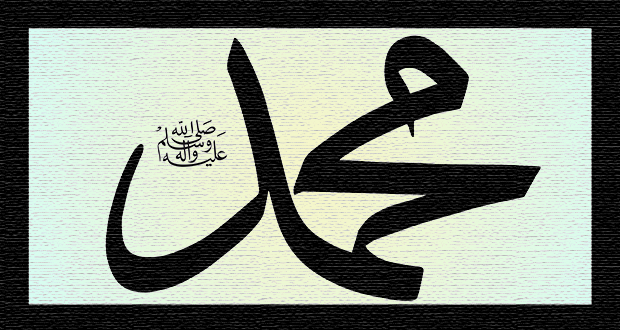Reflections from Sūrah al-Tahrīm
Part 1 | Part 2 | Part 3 | Part 4| Part 5 | Part 6
Āyah 4
إِنْ تَتُوبَا إِلَى اللَّهِ فَقَدْ صَغَتْ قُلُوبُكُمَا ۖ وَإِنْ تَظَاهَرَا عَلَيْهِ فَإِنَّ اللَّهَ هُوَ مَوْلَاهُ وَجِبْرِيلُ وَصَالِحُ الْمُؤْمِنِينَ ۖ وَالْمَلَائِكَةُ بَعْدَ ذَٰلِكَ ظَهِيرٌ
If you two [Ḥafsah and ʿĀ’ishah] repent to Allāh, [it is best], for your hearts have deviated. But if you cooperate against him – then indeed Allāh is his protector, and Gabriel and the righteous of the believers and the angels, moreover, are [his] assistants.
Lesson 8: The student of knowledge must strive hard in his/her pursuit
The great scholar and companion, ʿAbd Allāh b. al-ʿAbbās (Ibn ʿAbbās), was keen to know from a scholarly perspective, who the two being told to make tawbah (sincere repentenace) in this Āyah were. He knew that it was ʿUmar (raḍiy Allāhu ʿanhu) who had this knowledge, but he was not sure how best to ask this question. He knew that after the completion of Ḥajj, a believer returns feeling very relaxed and at rest, so he decided to accompany him on this pilgrimage.
Ibn ʿAbbās narrates:
“For the whole year I had the desire to ask ʿUmar b. al-Khattāb regarding the explanation of a verse [in Surah al-Tahrīm] but I could not ask him because I respected him very much. When he went to perform Hajj, I too went along with him. On our return, while we were still on the way home, ʿUmar went aside to answer the call of nature by the Arak trees. I waited till he finished and then I proceeded with him and asked him: ‘O chief of the Believers! Who were the two wives of the Prophet (sall Allāhu ʿalayhi wa sallam) who aided one another against him?’ He said, ‘They were Ḥafsah and ʿĀ’ishah.’ Then I said to him, “By Allāh, I wanted to ask you about this a year ago, but I could not do so owing to my respect for you.”[1]
This provides a strong example of the etiquette of a student of knowledge, in terms of striving long, hard, and being eager, to seek knowledge. Ibn ʿAbbās was only seeking the answer for one question, yet he travelled a long distance, completed Ḥajj and thereafter, waited for the perfect moment to ask for the answer.
Lesson 9: The effects of our sins
Although the incident being referred to was seemingly committed (by the wives) against the Prophet (sall Allāhu ʿalayhi wa sallam), Allāh tells Ḥafsah and ʿĀ’ishah (raḍiy Allāhu ʿanhumā) to repent to Him, highlighting an important lesson: wronging the creation of Allāh (subḥānahu wa taʿālā) is tantamount to wronging Allāh (subḥānahu wa taʿālā) Himself. This is because wronging an individual is a transgression of the God-given rights that Allāh has bestowed upon the creation, and thus Tawbah (sincere repentance) to Allāh (subḥānahu wa taʿālā) is required, as well as seeking forgiveness from those we have wronged.
Secondly, we learn that all sins we commit, knowingly or unknowingly, have an impact on our hearts and our relationship with Allāh (subḥānahu wa taʿālā); even if these sins are regarding the rights of other people. For every sin that is committed, a black dot is placed on our hearts, which creates a barrier for the love of Allāh flourishing within them. As was narrated, the Prophet (sall Allāhu ʿalayhi wa sallam) said:
“When the believer commits sin, a black spot appears on his heart. If he repents and gives up that sin and seeks forgiveness, his heart will be polished. But if [the sin] increases, [the black spot] increases. That is the Rān that Allāh mentions in His Book: ‘Nay! But on their hearts is the Rān [covering of sins and evil deeds] of that which they used to earn.[2]’”.[3]
Lesson 10: The gravity of opposing the Messenger (sall Allāhu ‘alayhi wasallam)
“But if you cooperate against him – then indeed Allāh is his protector, and Gabriel and the righteous of the believers and the angels, moreover, are [his] assistants.”
The verse continues, warning that if they chose not to repent, then indeed “huwa mawlah” (He is his protecting friend). The emphasis on the term “He is” shows that first and foremost, Allāh (subḥānahu wa taʿālā) is on his side. In addition to this, Gabriel (Jibrīl), the righteous believers and the angels are all on his side too, demonstrating specific examples of how Allāh (subḥānahu wa taʿālā) manifests His protection of His beloved Prophet (sall Allāhu ʿalayhi wa sallam).
The order in which the protectors and supporters are mentioned is particularly noteworthy: Jibrīl (ʿalayhi al-Salām), then the righteous believers and then the angels. Jibrīl (ʿalayhi al-Salām) is first because his relationship with the Prophet (sall Allāhu ʿalayhi wa sallam) is unique, in comparison to the relationship between the rest of the angels and the Prophet (sall Allāhu ʿalayhi wa sallam). Jibrīl (ʿalayhi al-Salām) is the greatest of angels – the one who revealed the greatest of all revelations to the greatest of all of creation – thus, making his relationship with the Prophet (sall Allāhu ʿalayhi wa sallam) particularly special.
The ‘righteous believers’, according to ʿIkrimah b. Abi Jahl, refers to Abu Bakr and ʿUmar (raḍiy Allāhu ʿanhumā), who were not only two of the greatest men of our Ummah, but interestingly the fathers of both ʿĀ’ishah and Ḥafsah. This shows that they would side with the Prophet (sall Allāhu ʿalayhi wa sallam) before their own daughters.
Finally, Allāh (subḥānahu wa taʿālā) mentions that the rest of the angels will also be his supporters, which, when you consider the sheer number in existence, not only makes someone shy to commit any minor wrong against him—as is the case here—but creates a tremendous and frightening image for anyone who dares oppose the Prophet (sall Allāhu ʿalayhi wa sallam) and be his enemy. In the narration regarding the Night Journey and Ascension (al-Isrā‘ wa al–Mi’rāj), the Prophet (sall Allāhu ʿalayhi wa sallam) said:
“Then I was shown al-Bait al-Ma’mūr. I asked Gabriel about it and he said, ‘This is al-Bait al-Ma’mūr where 70,000 angels perform prayers daily and when they leave, they never return to it [but always a fresh batch comes into it daily]’.” [4]
Furthermore, the Messenger of Allāh (sall Allāhu ʿalayhi wa sallam) said:
“I see what you do not see and hear what you do not hear. The heavens make a noise like groaning, and it has the right to, for there is no space in it, the width of four fingers, except that there is an angel there, placing his forehead in Sujūd (prostration) to Allāh.”[5]
The fact that these angels, in all their magnitude, are mentioned last, implies that all the ones mentioned prior are even stronger in their protection, exponentially amplifying the intimidating image created for anyone who opposes the Prophet (sall Allāhu ʿalayhi wa sallam).
In the next part, we will move on to the next two verses, and study some of the qualities of the perfect spouse, and the call to protect ourselves (and our families) from the Fire.
[donationbanner]
Source: www.islam21c.com
Notes:
[1] Sahīh al-Bukhārī, Volume 6, Book 60, Hadīth 435
[2] Al Qur’ān 83: 14
[3] Sunan ibn Mājah, Volume 5, Book 37, Hadīth 4244
[4] Sahīh al-Bukhārī, Hadīth 3207
[5] At-Tirmidhī, Hadīth 2312
Based on a course by Imam Asim Khan.






